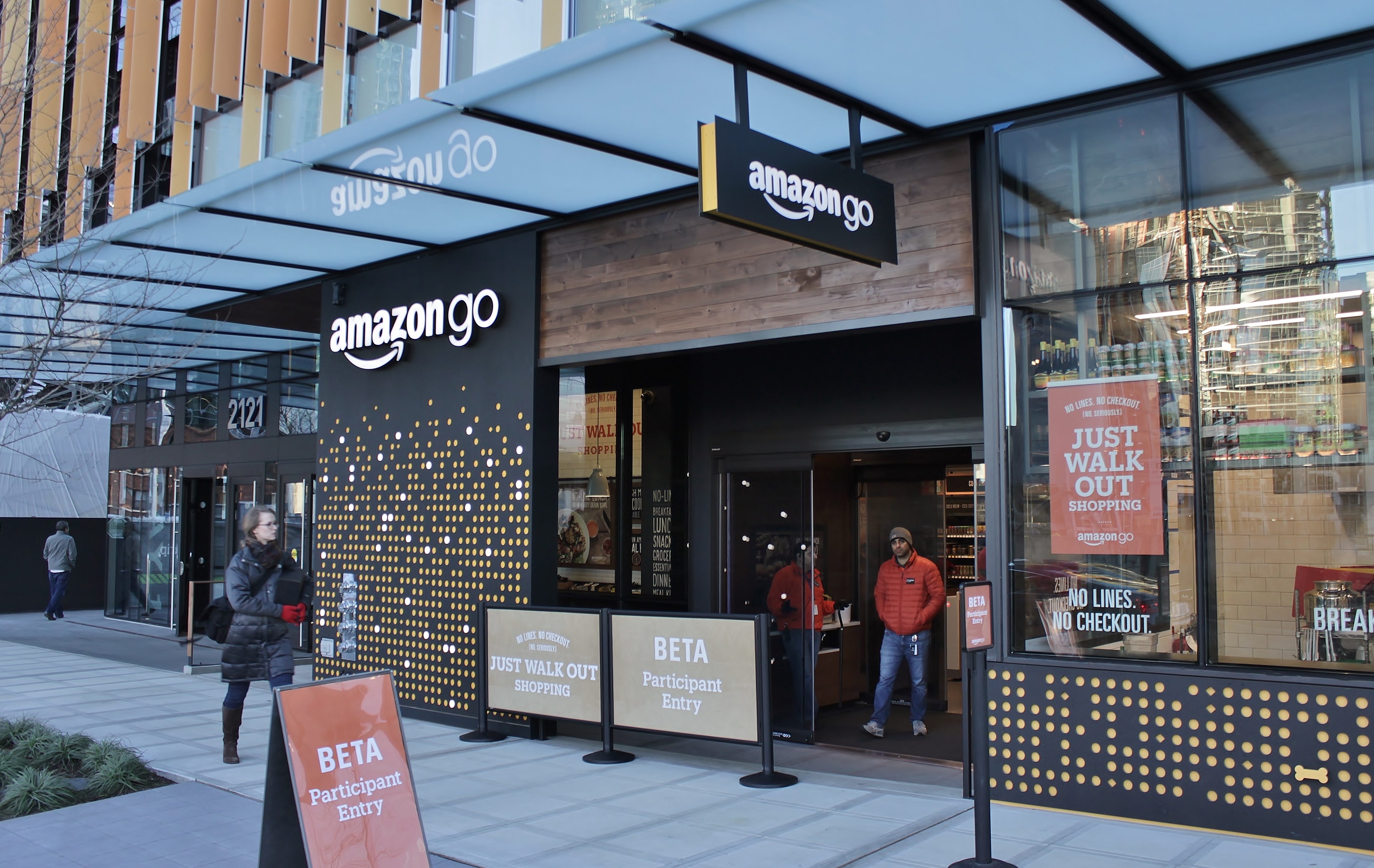![]()
Amazon, the online mega-retailer, introduced the next step for autonomous shopping: a walk-in market without cashiers, lines or registers.
At the entrance of the store, several devices are placed that prohibit entry to anyone who does not have a specific smartphone app. Not unlike subway passes, shoppers must scan in with their phones before entering the store. Instead of having manned registers, trackers are placed on merchandise. When a customer takes an item out of the store, the customer’s Amazon account is billed directly.
Amazon has kept tight-lipped on how their technology really works but have said that the store does not track items with chips or magnetized tags, a method employed by most stores to prevent shoplifting. Hundreds of cameras, suspended from the ceiling, track what items are taken. When a customer leaves the store, the entry devices scan the app and charge the account based on which items were taken.
Despite this technological feat, Amazon has received criticism by many for contributing to the perceived threat of automation. Many fear that factory jobs and other tasks will eventually eliminate human involvement, and will be entirely automated, thus eliminating jobs and increasing unemployment. However, Doctor Sam Heinrich, associate professor of business at John Brown University, remains optimistic.
The economy, Heinrich said, does not rise or fall based on a single factor. “You do have automation, and that is going to displace people in terms of skill sets, but you also have these other contributing factors going on simultaneously. Which effect is greater? Which is going to influence the labor force more significantly?”
Heinrich is not convinced that automation will spell the end of US labor, “I’m optimistic about a lot of things in the future that people predict are going to be catastrophic…because we live in a dynamic age. We’re not bound to fall off the cliff because we don’t have the abilities to turn from the edge.”
President Donald Trump has added criticism to the conversation, “Amazon is doing great damage to tax paying retailers. Towns, cities and states throughout the U.S. are being hurt – many jobs being lost!” Trump said on his Twitter account.
Trump is not the only one critical of Amazon’s methods. A report by the Institute for Local Self-Reliance, an organization interested in promoting innovation and independence among United States business, says Amazon “is undermining competition and reshaping the U.S. economy in ways that curtail opportunities for small businesses, reduce jobs and wages, limit product diversity and the choices available to consumers and harm the economic and fiscal underpinnings of communities.”
Students at JBU largely seem to believe the market will adapt to create new jobs. Jonathan Leonard, senior Biblical and theological studies major, acknowledges that jobs will change but said that the market is flexible, “It’s capitalism. The market changes. There’ll be new jobs. There will be a new marketplace, and you have the old one changing.”
Matt Branum, senior history major, agrees, “If it’s the blue-collar labor force you’re pulling from, there could be an impact on that, but I think there will be an effect to balance that out,” Branum said.
Nesha White, junior family and human services major, said automation eliminates “certain jobs, but also creates other jobs, but builds certain skills that were not available in the past before automation.”
Riley Weaver, senior accounting major, said, “In my field of accounting, a lot of what I’m even doing now is slowly being automated. . .there is that threat of being replaced, but ultimately will open opportunities.”
Channing Gallardo, senior nursing major, disagreed slightly with a primarily interpersonal criticism, “Automation can be helpful in a lot of circumstances, because that’s the future, that’s where we’re going, but it takes out a lot of human interaction that is really important.”
“Human interaction is really important for people. We should interact with the people we’re buying our groceries from. I think that’s a necessary human need, connection.”





